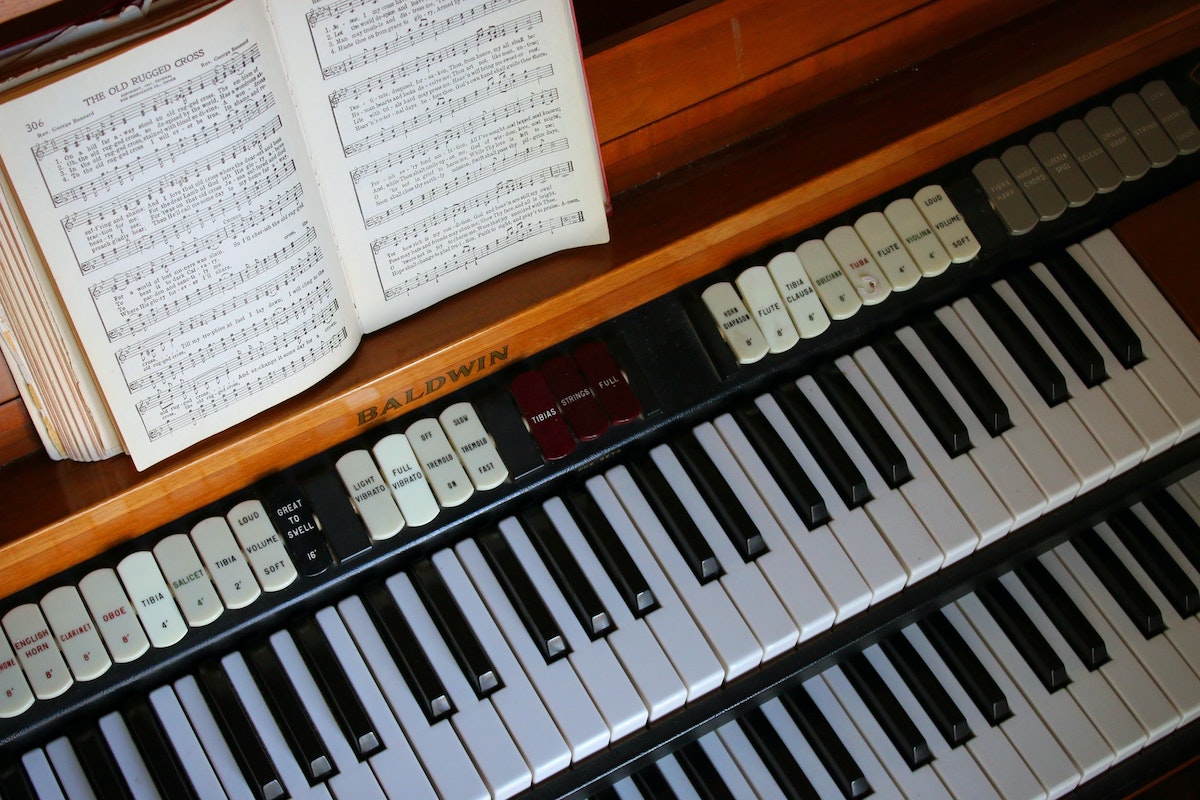This is an opinion piece. I might be completely wrong in my assessment. Here is my opinion.
First, two definitions are necessary. By “traditional Lutheran hymns” I refer to all hymns in Lutheran Service Book. By “contemporary Christian songs” I refer to songs composed over the last 30 years by non-denominational churches, played with guitars, drums, and electronic keyboard.
Traditional Lutheran hymns no longer hold a monopoly on hymnody in The Lutheran Church—Missouri Synod. They are only one option. My hunch is that they are not commonly sung in at least 50% of synodical congregations. I would like to see the statistics.
My question is this: How did this happen? I think the answer is not really theological. It is a sociological answer, a this-worldly explanation. In the United States, Protestant churches—by which I mean non-Roman Catholic—are competing with each other. Drive around any metro. You drive by some type of church every six blocks. Americans are church shoppers and church hoppers. We don’t have a state church. In this country “church” is forced into a consumer system, a free-market system, a capitalistic system with buyers and sellers. Every congregation is more or less forced to “sell” itself and everything it is about to American consumers. You need people to pay the bills. There is no way around that. We do not live in a state church context. As a result, every congregation and pastor must attract American “worship consumers.” This means that the musical tastes of the “worship consumers” will determine the worship resources. What worship hymns and songs are sung will pretty much be determined by the lay people and their wants.
And here is the point. Average Americans are not into 16-19th-century classical hymns. Why? I don’t hear the lay people complaining about the theology of these hymns, complaining that such-and-such hymn teaches the genus maiestaticum. No, they are complaining about the sound, the notes, the rhythm, the beat, the music. Less than 5% of the American population listens to classical music, and probably more like 1%. Americans listen to soft-rock, new country, jazz, rhythm and blues, and a host of other sounds but not classical music. The average American could not tell you the first thing about “Baaatch” or “Beeeth-oven.” And “Contemporary Christian music” is very popular in the U.S. So the rank and file want today’s musical sound.
However, instead of investing in a large effort to raise up today’s hymn composers who will compose hymns with today’s sound, with a sound that average Americans would find attractive, Missouri Synod officially adopted a different strategy. It put out Lutheran Service Book and wants all synodical churches to use LSB. Well, trying to shove German chorales down the throats of today’s Americans simply will not fly. As a result, congregations and pastors look to other sources for their worship songs and hymns. That means they look to “Contemporary Christian music.” But with that choice there is a huge downside. The problem with “Contemporary Christian music” is precisely their words and theology. Those worship songs rarely extol baptism or the Lord’s Supper. They rarely extol the gospel narrative. In fact, those worship songs rarely express a verse-to-verse narrative about the saving work of God in Christ. They do not publish songs for the different seasons of the church year. The wording of those “Contemporary Christian songs” is no match for the strong theological wording of the hymns in LSB.
I myself like LSB. I grew up on these kinds of hymns. My mother was a traditional Lutheran church organist for over 70 years. But that traditional Lutheran hymnic sound is just not popular among today’s Americans. The theology and the words have nothing to do with their distaste. It is the music. And music is completely cultural. It is like language. Orthodox theology can be expressed in different languages and in different kinds of music. The musical instruments of ancient Israel included hand-held harps, hand-held drums, various types of pipes, shofars, and other instruments.
My overall assessment is this: the Missouri Synod basically shot itself in the foot. Most Americans cannot embrace the musical sound of 16-19th-centuries Lutheran hymns. The only way forward is for every generation to raise up hymn composers who can put strong theological wording to the musical sound of today and tomorrow. And if copyright laws permit, put traditional Lutheran hymn-wording to different musical sounds. True theology comes from the Holy Scriptures. Types of music vary from age-to-age and place-to-place.


Leave a Reply
You must be logged in to post a comment.